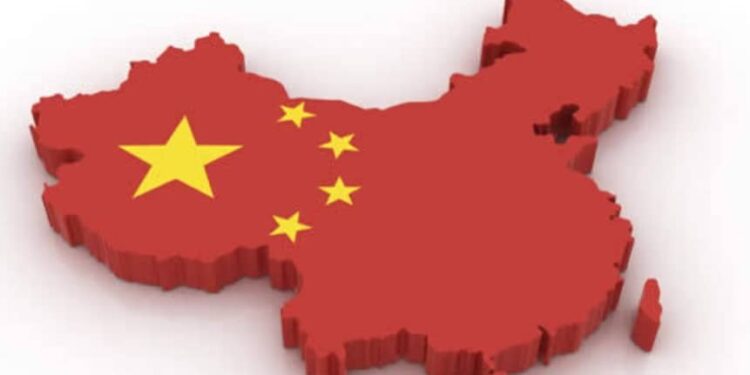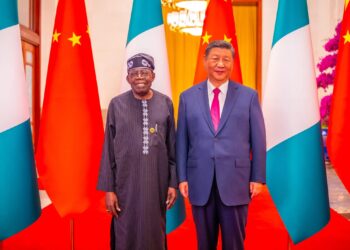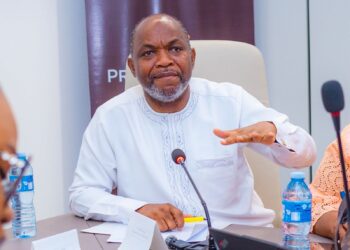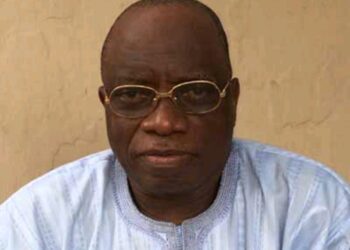EXPLAINER : Understanding Taiwan Question And One-China Principle/Policy
By Lawal Sale
Globally, Nigeria inclusive, there have been a lot of misunderstandings and distortions regarding the status of Taiwan and what the One-China principle/policy is all about.
To some, Taiwan, which was also known as Republic of China, is a full-fledged independent country with all the privileges of a sovereign nation but such notions are somewhat skewed and faulty.
This is because of the fact that the Republic of China ceased to exist on October 1, 1949 when the Chinese civil war ended with the official establishment of the current People’s Republic of China.
The proclamation of the People’s Republic of China occurred at the end of the war between the nationalist Kuomintang Party and the Communist Party, when the nationalists led by Chiang Kai-shek relocated to Taiwan.
After years of legal and diplomatic tussle, the United Nations General Assembly (UNGA) at its 26th session in 1971, passed Resolution Number 2758 which undertook “to restore all its rights to the People’s Republic of China and to recognise the representatives of its government as the only legitimate representative of China to the United Nations, and to expel forthwith the representatives of the Koumingtan Party from the place which they unlawfully occupy at the UN and all the organisations related to it.
It was after the passage of the resolution that issues such as political, legal and procedural concerns about China’s representation in the UN were finally settled and the subject covered the whole country, including Taiwan.
The UN Resolution 2758 of 1971 also spelt out that China has “one” single seat in the United Nations, so there is no such concepts as “two China” or Republic of China as Taiwan also called itself.
Sole recognition was given to the People’s Republic of China, with its capital in Beijing. Since then, Taiwan was referred to as “Taiwan province” of China.
Consequently, member countries of the United Nations, including Nigeria, have established diplomatic relations with the People’s Republic of China on the basis of “one-China principle/policy”.
To this effect, Republic of China (today’s Taiwan), lost its agitations for a sovereign status and, therefore, remained part of China.
To date, over 183 member countries of the United Nations have established diplomatic relations with the People’s Republic of China.
In Africa alone, 53, out of 54 sovereign countries, have diplomatic relations with China. Only eSwatini maintains ‘diplomatic’ relations with Taiwan.
Meanwhile, Taiwan operates only Trade Office in the economic and commercial city of Lagos in the Federal Republic of Nigeria, representing it’s interests in the absence of formal diplomatic relations.
Its counterpart in Taiwan is the Nigeria Trade Office in Taipei, Taiwan.
One-China Principle/Policy :
By all means, the concept of “One-China principle/policy” is plain, unambiguous and straightforward.
Indeed, it was the result of the overwhelming recognition of the People’s Republic of China through the UN Resolution 2758 of 1971 and its subsequent affirmation by all the UN member nations.
Since then, the slogan has always been – “there is only one China” in the world, and Taiwan is an inalienable part of China, while the government of People’s Republic of China is the only legitimate government representing all China.
Adhering to the one-China policy is obviously universal and unconditional, as all countries of the world have since 1971 established full diplomatic relations with Beijing and complied with the decision of the United Nations General Assembly.
Nigeria-China Relations:
In consequence of the UN Resolution 2758 of 1971, Nigeria, being a full member of the United Nations, complied with the provisions of the resolution and instantaneously established diplomatic relations with the People’s Republic of China on February 10, 1971.
A joint Communiqué between the governments of the People’s Republic of China and the Federal Republic of Nigeria then stated that “The government of the Federal Republic of Nigeria recognises the government of the People’s Republic of China as the sole legal government representing the whole of the Chinese people”.
Since 1971, the government of Nigeria has firmly adhered to the dictates of the one-China principle/policy.
As bilateral relations between Nigeria and China continue to grow and flourish, several exchanges and bilateral meetings have been successfully convened, based on win-win cooperation.
In 2017, the administration of late former President Muhammadu Buhari, in its commitment to the one-China principle/policy, signed a memorandum of understanding with the government of the People’s Republic of China, affirming its stance on the one-China principle during a visit by the Chinese foreign minister to Abuja.
In the document, Nigeria maintained that there is only one China, while both China and Taiwan are invaluable parts of sovereign China.
Similarly, in September 2024 when Nigeria’s President Bola Ahmed Tinubu visited China to participate at the meeting of Forum on China Africa Cooperation (FOCAC), Nigeria and China signed, among other cooperation agreements, two joint statements, reaffirming that “the Nigerian side firmly adhere to the one-China principle, acknowledging that there is but one China in the world, and the government of People’s Republic of China is the sole legal government representing the whole of China and Taiwan is an inalienable part of China”.
Since the establishment of Nigeria-China diplomatic relations, dealings between the two countries have continued to flourish over the years, recording significant achievements under different frameworks including Belt and Road Initiative and Forum On China Africa Cooperation, with several projects already completed.
At the FOCAC Summit in 2024, Nigeria’s President Bola Ahmed Tinubu and his counterpart, President Xi Jinping signed a joint statement on the ratification to upgrade the relationship from “China-Nigeria Strategic Partnership” to the “Comprehensive” level, so as to boost and usher the decades-long bilateral relations between the two countries into a “New Era”.
“Following his return to Nigeria after the FOCAC Summit, President Bola Tinubu approved the establishment of the Nigeria-China Strategic Partnership (NCSP) and appointed a Director-General to lead the initiative.
The NCSP is tasked with driving strategic collaborations and unlocking investment opportunities between Nigeria and China.”
”The Partnership aims to promote sustainable industrialization, economic diversification, and long-term development, while fostering inclusive, mutually beneficial partnerships that accelerate growth. Since its inception, the NCSP has hit the ground running, transitioning the bilateral relationship from a predominantly trade-focused engagement to a development-driven strategic alliance.
“It is also driving strategic initiatives in line with the Renewed Hope Agenda of President Bola Ahmed Tinubu, GCFR”
*Lawal Sale is Global South Affairs Analyst based in Abuja (lawalmaida1@yahoo.com)
(vitalnewsngr.com)




















